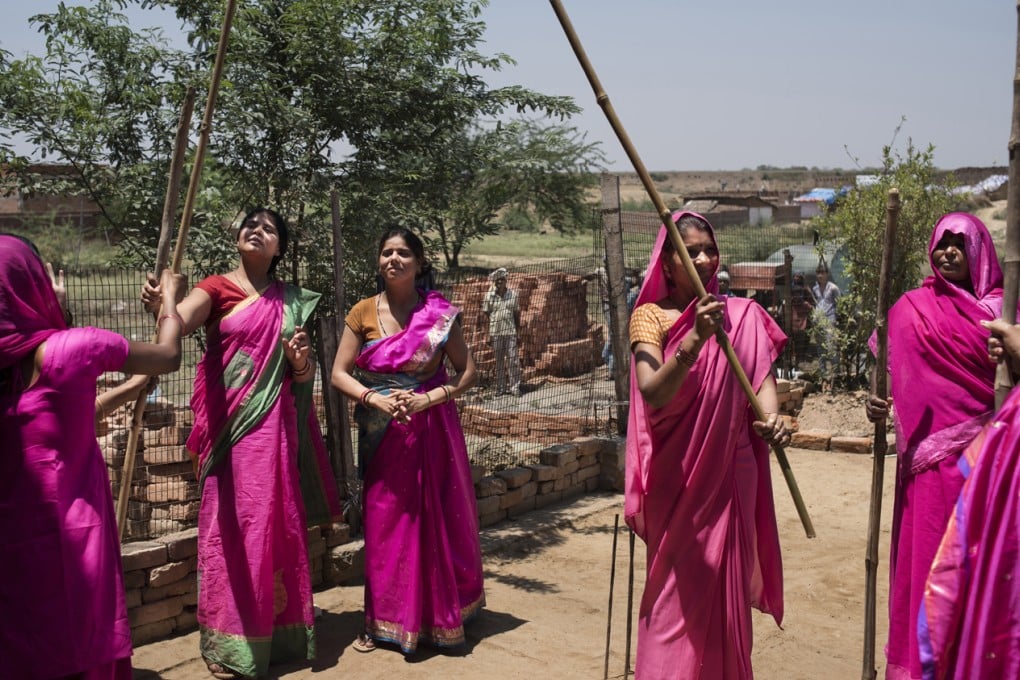Meet the Gulabi Gang: stick-wielding women vigilantes standing up to abusers in India
The sari-wearing, stick-wielding vigilantes of the Gulabi Gang, who stand up to those who abuse women, are forcing formerly apathetic authorities into action, writes Zigor Aldama.

Janki Devi’s relationship with the man she fell in love with was never an easy one. She was only 15 when she met twenty-something Anand Kumar, with whom she would lose her virginity a few months later.
Not surprisingly, both sets of parents opposed the union. In rural areas of the Indian state of Uttar Pradesh, as is the case across the country, marriages are still arranged by the families of those involved, regardless of romantic feelings, and are based on religion, caste, economic status and political relations between the two clans. Love, they say, comes with time and routine.
Janki Devi and Kumar’s parents demanded that they stop seeing each other. In defiance, the couple married in secret.
In 2006, as per Indian tradition, Janki Devi moved into the home her husband shared with his parents. And so began her nightmare.
Janki Devi and her husband were unable to conceive a child and, on February 23 this year, Anand’s parents doused her with petrol and set light to her. Neighbours rushed her to hospital but that night Janki Devi died.
When her parents tried to lodge a complaint with the police, the officers refused to register it.
Janki Devi was just one of the more than 300,000 women who each year are the victims of violence in India – a country where, according to official statistics from 2013, a woman is abducted every 10 minutes and one is raped every 20 minutes.